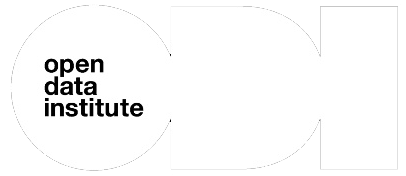





{{dateShow(filterData[0].project_initiation_date)}}
{{filterData[0].description}}
Public Interfaces
Trusted Intermediary
Data Pooling
Research and Analysis Partnership
Prizes & Challenges
Intelligence Generation
Europe and Central Asia
Latin America and the Caribbean
East Asia and Pacific
Middle East and North Africa
North America
Sub-Saharan Africa
Global
South Asia
{{filterData[0].contact_info}}
Participants {{filterData[0].participants}}
Type of Question Situational Awareness; Cause and Effect Analysis; Prediction; Impact Assessment;
Topic Area
Tracking the Pandemic’s Evolution;
Developing Disease Treatment;
Identifying Availability and Demand for Supplies;
Monitoring Adherence to Health Protocols and Practices;
Understanding Public Perceptions, Well-being and Behavior;
Protecting Democracy, Human Rights and Promoting Government Accountability;
Addressing Misinformation;
Supporting Post-Pandemic Re-openings and Recovery;
Alleviating the Burden on Migrants;
Alleviating Pandemic-related Unemployment and Poverty;
Guaranteeing Protections for Workers;
Supporting Education, Upskilling and Reskilling;
SFostering Business and Government Solvency;
Assessing Environmental Impact;
Understanding the Economic Impact;
Sector
Public Health;
Social;
Economic;
Scope
Local;
Regional;
National;
Multilateral;
Undefined;
Privacy Measures {{mobilityData[0].privacy_measures}}
Data Type Call Detail Records x-DRs First-Party Software Development Kit-derived Smartphone GPS Third-Party Software Development Kit-derived Smartphone GPS BidStream Data Wearable GPS Aerial Imagery Vehicle GPS Bluetooth Geotagged Social Media Data Cellular Signaling Data Combined Third-Party smartphone-derived GPS Third party location data Sensor Data WiFi Footfall data Ticketing fare data Public transportation records Point of Interest Data
Data Supplier Private Sector; Civil Society; Research/Academia; General Public; Public Sector;
Data User Private Sector; Civil Society; Research/Academia; General Public; Public Sector;
Data Sources Social media data; Online search data; Clinical data; Health system usage; Academic research databases; Consumer data; Surveys / crowdsourcing; Geospatial data; Location intelligence; Telecom Data; Wearables and biometric data; News media; Satellite imagery; Supply chain, manufacturing, and other industrial data; Retail; Transportation providers; IoT sensors; Health business data; Government data (open and administrative data); Financial data;
Output Dashboard / Visualization; Repository / Portal; Static Reporting; Mobile App; Interactive Tool / Analytics;
{{filterData[0].long_description}}
The Governance Lab at New York University’s Tandon School of Engineering, The GovLab, is an action research center whose mission is to strengthen the ability of institutions — including but not limited to governments — and people to work more openly, collaboratively, effectively and legitimately to make better decisions and solve public problems. The GovLab’s existing Data Collaborative framework identifies the factors that make data-sharing partnerships effective in generating public value, as well as providing a blueprint for designing successful Data Collaboratives while also embedding principles of responsible data use. As an extension of this work, The GovLab’s #Data4COVID-19 project provides a living repository of 175 multi-stakeholder data collaboratives focusing on data sharing throughout the pandemic, including 31 projects focused primarily on mobility data sharing - enabling a jumpstart of the above project with early deliverables from mid November onwards.
“Data for Good” is the corporate social responsibility program of Cuebiq, a mobility data platform. Since 2016, Cuebiq has provided mobility data and insights for over 100 academic research projects and humanitarian initiatives related to human mobility. Throughout the COVID-19 pandemic alone, Cuebiq established a COVID-19 Data Collaborative to provide privacy preserving mobility data to dozens of organizations, including the CDC, the City of New York, UNICEF, the World Bank, Johns Hopkins University, and Oxford, among many others. Beyond the establishment of a formal COVID-19 Data Collaborative, Cuebiq has built a model for responsible mobility data sharing grounded in ethical data provenance and privacy by design.
The ODI was co-founded in 2012 by the inventor of the web Sir Tim Berners-Lee and artificial intelligence
expert Sir Nigel Shadbolt to show the value of open data, and to advocate for the innovative use of open
data to affect positive change across the globe.
We’re an independent, non-profit, non-partisan company that, since our creation, has welcomed high-profile
board members including Mumsnet founder Justine Roberts, Lastminute.com founder Baroness Martha Lane Fox and
former European Commissioner Neelie Kroes.
Headquartered in London, with an international reach, hundreds of members, thousands of people trained,
dozens of startups incubated, and a convening space in the heart of the capital, we invite everyone
interested in developing with data – whether on an individual, organisational or global level – to get in
touch.